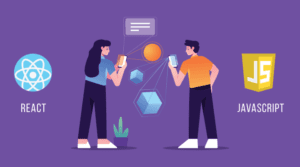Implementing the cloud-based telephony service is the most effective strategy for small companies to manage business communications with fewer resources.
Cloud-based telephone systems boost efficiency by utilizing their key capabilities to improve customer satisfaction. As a result, companies that provide more pleasant customer experiences are often the ones that succeed quickly.
The capabilities of business phones contribute to seamless communication between you and potential prospects. In addition, these features give you a tactical advantage to devise a strategy to improve your sales processes.
Each feature comes with specific functionality and function. This article will discover the top 11 most effective cloud telephony software functions for small businesses.
Most Useful Cloud Telephony Software
Here are the 11 Most Useful Cloud-based Telephony Software Features for Small Businesses.
The telephone is mostly used for making and receiving calls. Every aspect of your business is dependent on phone calls.
Thus, implementing cloud-based telephony systems functions to simplify call management and accessing sales processes is a great option. Below are some of the features you should have for your phone.
Call Forwarding
Forwarding call is a VoIP feature that lets users route calls to different addresses. Call forwarding can be referred to by the name “call diverting”.
Call forwarding is now a standard feature on many telephone systems. It can dramatically enhance how you handle all your calls, whether your business handles all calls on one line or operates a separate call center.
Small businesses might want all their phones ringing at their home, office, or personal phones to ensure that customers receive quick responses or give an immediate presence. It enhances the user’s interaction in the most effective manner possible.
Call Monitoring
Monitoring call is one of the components of call monitoring that lets you listen to calls to enhance customer interaction.
In most cases, you or team members can listen to live calls. However, members of the Quality Assurance team utilize this after the call has concluded to verify the quality of the call. In addition, it helps train new employees and makes business decisions that improve efficiency and effectiveness.
Call Routing
The Call Routing tool is essential for managing calls designed for use with business telephone systems. It can queue calls before sending them to a specific person or group of individuals following pre-determined guidelines and rules. Then, it routes the call before someone picks up the call on the other side.
It examines factors such as the volume of calls, time of day, preferred language of the caller department they requested, and the agent’s ability to direct calls. Then, it can use to automate the dispersal of inbound calls. It’s why call routing systems can be called Automated Call Distribution (ACD).
Call Recording
Recording calls is a secure and reliable way to record audio in two directions from calls on the cloud. From call centers for enterprises to smaller businesses just starting, the feature has become among the best VoIP functions.
Businesses and individuals can make use of call recording to track verbal agreements. In addition, the recording of VoIP calls can aid in retaining information during a fast-paced conversation.
Call Analytics
CA or call analytics utilizes AI (AI) technology to gather information from inbound phone calls. Call tracking information such as the person who called, the caller’s number, and the marketing source are all included in the analytics. In addition, conversation intelligence information derived from the contents of the conversations is as well.
The data can use to make better budgeting choices, discover problems that reduce the conversion rate, target customers by displaying ads according to the content of their conversations, and increase leads with less expense.
Voicemail
Voicemails are digitally recorded voice messages that the caller leaves for the recipient to read later. Depending on the phone system used by the company that is receiving the call, the message stored is accessible through a desktop, phone, email, or other devices for communication.
It has an interface for the user that lets users select the option to play, read, and manage messages. The person who left the message may choose to play or send the message via delivery functions. Additional alarming tools alert recipients of unanswered messages.
Interactive Voice Response (IVR)
IVR is an acronym for Interactive Voice Response, and it is a kind of automated telephone system. It lets callers get information through an automated voice response system with recorded messages without talking to an agent. It uses menu options through keypads that can use for touch or speech recognition to get their calls routed to a particular department or specialist.
Integration of CRM
Connecting the CRM platform with other applications is called the integration of CRM applications. Its main goal is to transfer information from the CRM system and other applications. The right CRM software can supercharge your small and enterprise business by boosting your sales team’s ability to close deals.
It can store accurate information from your business software to give you an accurate overview of your company and customers. Additionally, It allows task automation by implementing process automation. Also, It will eliminate the necessity of switching back and back and forth among CRM systems and applications.
Custom-designed messages
Create customized messages and greetings for calls to use as part of the dial plan for your company’s telephone number. Voicemail for business, auto-attendants or even the queues for calls can all benefit from these customized greetings or messages.
The messages you create can send to all users. In addition, callers may wish to connect with the specific department or exclusive VIP callers based on their telephone number.
Click-to-call
It is a “click-to-dial” widget that is a website-based and mobile device that dials a number for you automatically after you click it. Most often, it’s an option on a company’s website. It lets you speak with a support representative on the site you’re browsing in real-time.
It is possible to enter your telephone number using one of the Click-to-dial widgets. You will get a call from the sales team right away after you have entered your telephone number.
Call Screening
Call screening aids users in making the decision they want to accept or deny the call. For example, caller IDs can identify which calls should be ignored or accepted, escalated, or transferred to voicemail.
Calls from spammers, prank calls, and other calls that are not wanted are decreased by using call screening. Agents can also use the feature to prioritize calls so that they allow only the most important calls on their devices or phones.
Wrapping up
Each cloud telephony software function is helpful in your busy schedule business. The features that are bundled into one system allow you to concentrate on finding the ideal cloud-based phone system to run your business. There are so many bugs are in their cloud system get rid of bugs with the above solution
The software offers every solution to your business communications thanks to its incredible array of key features when it comes to cloud telephony software platforms. It is most well-known for its unifying callbox and a single dashboard that allows you to access the 11 mentioned cloud telephony functions.







